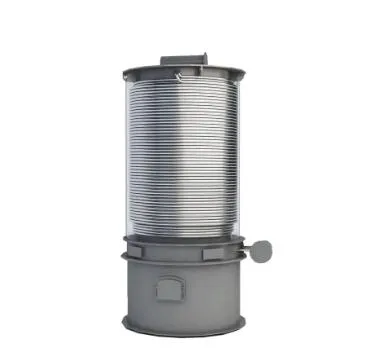Heat Transfer Oil Boiler: The Key Hub Of Industrial Thermal Energy Transfer
As an industrial thermal equipment, Heat Transfer Oil Boiler plays a crucial role in many fields. It uses thermal oil as the heat carrier instead of traditional water or steam. With its unique physical and chemical properties, it exhibits significant advantages in high-precision, wide temperature range, and low-pressure operation, becoming a key hub for modern industrial heat transfer.

The core advantage of Heat Transfer Oil Boiler is its ability to achieve higher operating temperatures without having to withstand excessive system pressure
Compared to water or steam boilers, heat transfer oil can reach higher temperatures at lower pressures. For example, at a temperature of 300 ℃, the pressure of heat transfer oil systems is much lower than that of steam boilers. This feature reduces the operational risk of the equipment, improves safety, and simplifies the manufacturing and maintenance difficulty of the equipment. Therefore, in high temperature demand application scenarios such as chemical, textile, food processing and other industries, the application of Heat Transfer Oil Boiler is more extensive.
Heat Transfer Oil Boiler has high thermal efficiency
Thermal oil has excellent thermal stability and thermal conductivity, which can effectively transfer heat from the heat source generated by fuel combustion to the user side. Due to the low pressure of the hot oil heat transfer system, the insulation requirements for pipelines are relatively reduced, which reduces heat loss. In addition, the heat transfer oil system usually adopts a closed cycle, which can effectively prevent the oxidation and deterioration of the heat transfer oil, extend its service life, and ensure the long-term stability of thermal efficiency.
Heat Transfer Oil Boiler also has certain limitations
Thermal oil itself has a certain degree of flammability, so there is a high requirement for safety protection measures. In the process of design, installation, operation, and maintenance, safety regulations must be strictly followed, such as setting up necessary safety valves, level gauges, temperature monitoring systems, etc., to prevent accidents such as leaks and fires. In addition, the price of thermal oil is relatively high, and the operating cost is also relatively high, which requires comprehensive consideration when choosing.
With the continuous development of industrial technology, Heat Transfer Oil Boiler is also constantly innovating
The development of a new type of heat transfer oil has improved thermal stability and service life, and the application of intelligent control systems has achieved more accurate temperature control and higher energy utilization efficiency. In the future, industrial hot oil heaters will develop towards a safer, more efficient, and intelligent direction, continuing to play an important role in the field of industrial thermal energy transfer.
In summary, industrial thermal fluid heaters demonstrate outstanding performance in high temperature and low pressure application scenarios due to their unique advantages. Despite certain safety hazards and cost issues, through strict safety management and continuous technological advancements, Heat Transfer Oil Boiler will continue to be an indispensable thermal energy transfer equipment in modern industry, providing reliable thermal energy support for the production and operation of various industries.
Heat Transfer Oil Boiler FAQs
What is the working principle of Heat Transfer Oil Boiler?
The Heat Transfer Oil Boiler heats the heat transfer oil (heat carrier) by burning fuels such as natural gas, diesel, biomass, etc. The high-temperature oil flows through the heating equipment (such as reaction vessels, dryers, etc.) driven by a circulation pump, releases heat, and returns to the boiler for reheating, forming a closed cycle system. Its characteristic is high temperature (up to 300 ℃) and low pressure operation, with high safety.
What are the advantages of Heat Transfer Oil Boiler compared to steam boilers?
High temperature and low pressure: Heat Transfer Oil Boiler can achieve high temperature under low pressure (steam boilers require high pressure to reach the same temperature).
No phase change: The heat transfer oil is always in liquid state, without the need to treat condensed water or latent heat of vaporization, resulting in more stable thermal efficiency.
Energy saving: No heat loss due to latent heat of vaporization, higher system heat utilization efficiency.
Antifreeze: Thermal oil has a low freezing point and is suitable for cold regions.
What safety measures are required for Heat Transfer Oil Boiler?
Key security configurations include:
Overtemperature protection: prevents excessive oil temperature from causing coking or combustion.
Low pressure protection: Monitor the pressure of the circulating pump to avoid overheating caused by insufficient flow.
Expansion tank nitrogen sealing system: isolates oxygen to prevent oxidation and deterioration of heat transfer oil.
Emergency discharge system: Quickly cool the heat transfer oil in case of sudden power outage.
Common causes of deterioration of Heat Transfer Oil Boiler and how to detect them?
Reason: High temperature oxidation, local overheating coking, impurity contamination, and long-term non replacement.
Testing method:
Regular sampling and testing (viscosity, acid value, flash point, residual carbon, and other indicators).
Observe the color darkening or the appearance of sediment.
The system pressure has increased (possibly due to coking causing pipeline blockage).
How to improve the energy efficiency of Heat Transfer Oil Boiler?
Optimize the circulation system: Ensure reasonable pipeline design and reduce resistance.
Regular cleaning: Remove coking inside the pipeline to maintain heat transfer efficiency.
Waste gas and heat recovery: Install an economizer or air preheater.
Choose the appropriate thermal oil: Choose a model with high thermal stability (such as mineral oil or synthetic oil) based on the working temperature.
-
Hebei Yineng Boiler will attend Shoes & Leather Exhibition- Vietnam 2025ЖаңалықтарJul.01,2025
-
Understanding Waste Heat Boilers: Revolutionizing Energy EfficiencyЖаңалықтарJun.24,2025
-
Industrial Hot Water Boiler: The Backbone of Efficiency and ReliabilityЖаңалықтарJun.24,2025
-
Industrial Hot Oil Heater: The Ultimate Solution for Your Thermal NeedsЖаңалықтарJun.24,2025
-
Horizontal Steam Boiler: The Optimal Solution for Industrial ApplicationsЖаңалықтарJun.24,2025
-
Electric Steam Boiler for Industrial UseЖаңалықтарJun.24,2025

